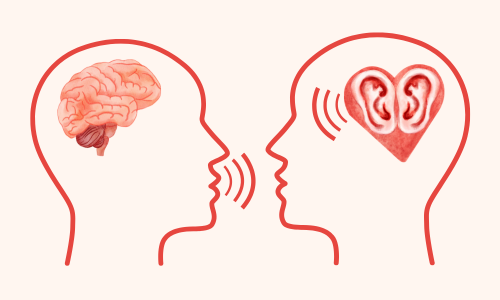Life is full of ironies. Last October, Carol Orsborn and I launched our book, The Spirituality of Age: A Seeker’s Guide to Growing Older at The Harvard Bookstore. The book confronts the shadow side of aging, finding spiritual opportunity in the challenges—including physical losses–associated with growing older. After working on it for nearly 4 years, it was a night to celebrate the hard, long distance collaboration that birthed our book.
However, by the time our book tour took us to Nashville, I could barely stand for the presentation. Two weeks earlier, I’d injured myself during a Pilates exercise. Strain and pain took possession of my left hip and the symptoms continued with little relief. Subsequently, my condition was diagnosed as degenerative arthritis and osteoarthritis requiring hip replacement surgery. But that would have to wait, for, by tour’s end just one month later, my PSA continued to ascend, and I was diagnosed with prostate cancer that required surgery.
Once it became clear that the time for “watchful waiting” and “active surveillance” of my PSA was over, the reality of the physician’s clear recommendation, surgery, hit home! Then, the question became, what surgical procedure to choose, a more invasive radical prostatectomy or a less invasive laparoscopic procedure.
The physician who had monitored me for years, and to whom I felt a kind of loyalty, did the more invasive procedure. A retired orthopedic surgeon-friend had had the latter, less invasive procedure done a year earlier by another surgeon and colleague of my physician at the same hospital. My friend outlined why he chose that procedure. I felt some disloyalty in choosing to go with the surgeon who attended him, yet, I had to do what I decided was best for me, and my wife seconded my decision. The results proved that I had made a good decision.
With the successful prostatectomy behind me, I prepped for the hip surgery that was set for June 20. I joked with friends about the irony of having written a book about aging, only to find myself doing first hand, deeper research after its publication. So, what have I learned since writing the book that is continuing to alter and deepen my consciousness?
In our book Carol and I talk about the spiritual opportunities that occur not in spite of, but because of aging. We write about looking fearlessly at all aspects of aging, and my experience since October has been and for sometime into the future, will be fraught with shadows.
During this time, one source of hope and encouragement has been my awareness of Ignatius of Loyola, founder of the Jesuit Catholic religious order of which I was a member for 10 years. The author of the Spiritual Exercises, Ignatius’ transformation of consciousness occurred following significant battle injuries and pain.
As a result of a year- long recovery and convalescence, his vision of his life and future so changed that his earlier aspirations, goals and desires were overridden and transformed. He emerged from his period of challenge with a powerfully enhanced spirituality and a dedication to serve others.
It is still not completely clear what fruit my recovery and convalescence will ultimately produce. However, I do know that it is already “growing me” in ways that are likely to positively impact my personal life as well as professional life as a psychologist.
Among the many transformations of consciousness that are occurring three are worth highlighting. In particular what I call the “Three Grand Illusions” have been shattered: the illusions of independence, invulnerability and immortality. These “shatterings” are freeing me from my fear-based bondage to them and the denial that maintained them.
What I realize is that I never was nor ever will be completely independent or self-sufficient, though there was a time I said, “I don’t want to ever need anybody!” From my conception on June 28, 1946 until I take my last breath, I have been a dependent man, a human being who is interdependent with everything and everyone in this world. What a relief to be so much more deeply aware of this reality, a consciousness that frees me from the discouragement and shame that can emerge at such times. This shattering has given me the gift of a much greater awareness of “Community.”
As a serious athlete who played college football, it was important to think of myself as invulnerable, even when various injuries sidelined me at times. In my twenties, bouncing back from injuries occurred more rapidly and easily than is now possible at 70 years old. And even if the bounce back did not happen my denial would reassert itself, something that no longer works for me.
There are certainly times when I am disheartened and want to give up. Nonetheless, little by little, my limitations, weakness, and vulnerability have gestated another gift and personal growth more profound than I could have ever imagined: a deeper sense of “Compassion.”
This is another irony, given that before all that has happened since October, had you asked me if I was a compassionate man, I would have said “yes,” and others would have agreed that I was. What I realize now is how superficial the depth of my compassion actually was.
In fact, underlying my compassion was a tendency to distance myself from the sufferings of others, an underlying revulsion and fear about getting to close to the pain I did not want to imagine myself experiencing. It was such dread that kept me from attending to patients on the spinal cord injury unit, quadriplegics and paraplegics, until many months after the beginning of my work as a hospital chaplain some forty years ago.
Now that my heart has been broken open I do not want to take flight from the sufferings of others. Indeed I draw nearer and can stay nearby even if I feel helpless to do anything to alleviate the other person’s pain and suffering. Even if all I can give them is my silent, conscious presence and humanity.
Finally, the illusion of immortality is biting the dust. Fortunately, my mother readied me for this time of my life, when I face not just the deaths of others, but my own. When I was 11 years old and first truly dreaded the possible deaths of my parents, my mother birthed my courage by saying three things as I sobbed, repeatedly, looking her in the eyes through my tears and saying, “You’re gonna die!”
First, she said very calmly, looking me in the eyes, “That’s true. Someday I am going to die.” Second, she added, “Probably not for a while” (indeed, she was right, the “not for a while” was thirty-four years later, when I was forty-five years old). Third, in her wisdom-filled moment she concluded with, “So, in the meantime, why don’t you go out and play with your friends” – and that is what I have been doing ever since, and will continue to do until my last breath.
Now as the truth of my own mortality is laid bare, and I cannot deny it or remain blind to it, my “Courage” is growing, not in spite of the fear and dread of death that still persists and rears its head at times, but because of it.
At the same time, there is a deepening sense of “Comfort.” The seed of this fruit was planted long ago, fifty-nine years ago, when I internalized my mother’s words, words that calmed and comforted me in the face of the “too much reality” of death. Her comforting helped me to relax and to let go, what I hope to be able to do when my own “inevitable hour” comes.
So, perhaps we, conscious, sage-ing elders can experience both the end of our illusions of immortality, invulnerability, and independence, and, in their wake, experience the emergence of Courage, Comfort, Compassion and Community. This would be not only a grand irony, but a great gift.







Leave A Comment